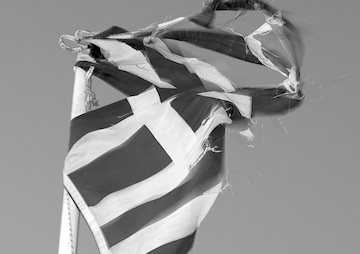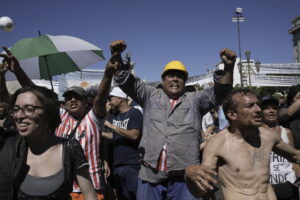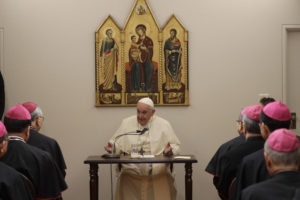Don’t Cry for Greece—Argentina Sets the Example for Surviving After Default
In Argentina, there's a name for what Germany and other troika members who've attempted to profit from Greece's austerity-induced suffering have become: "buitres," the Spanish word for vultures. GanMed64 / CC BY 2.0
GanMed64 / CC BY 2.0
In Argentina, there’s a name for what Germany and other troika members who’ve attempted to profit from Greece’s austerity-induced suffering have become: “buitres,” the Spanish word for vultures. And, as Joseph E. Stiglitz and Martin Guzman suggest in a piece for The Huffington Post, perhaps Greece could take a page or two out of Argentina’s book on how to handle its current crisis.
From The Huffington Post:
At last, after years of blackmailing Greece and demanding ever more austerity that led to a catastrophic economic depression, the Troika has finally pushed the country into the brink of default.
The situation has some important similarities with Argentina’s 2001 default — and some differences as well. In both countries, recessions turned into depressions as a consequence of austerity policies — making the debt even more unsustainable. In both cases, the policies were demanded as a condition for assistance. Both countries had rigid currency arrangements that gave them no possibility for running expansionary monetary policies during the recession. In both countries, the IMF got it wrong, providing alarmingly flawed forecasts of the consequences of the imposed policies. Unemployment and poverty soared, and GDP plummeted. Indeed, there is even a striking similarity in the magnitude of the fall in GDP and the increase in the unemployment rate … Defaults are difficult. But even more so is austerity. The good news for Greece is that, as Argentina showed, there may be life after debt and default … .To some extent, Greece faces a more complex situation than Argentina did in 2001. Argentina’s default was accompanied by a large currency devaluation that made the country more competitive and that, together with the debt restructuring, provided the conditions for a sustained economic recovery. In the case of Greece, default and Grexit would require the re-implementation of a domestic currency. It’s not the same to devalue an existing currency than to create a new currency in the midst of a crisis. This additional layer of uncertainty has enhanced the Troika’s capacity for pressuring Tsipras’s government.
When debt is unsustainable, there needs to be a fresh start. This is a basic, well-recognized principle. So far, the Troika is depriving Greece from this possibility. And there can’t be a fresh start with austerity.
Read more.
—Posted by Natasha Hakimi Zapata
Your support matters…Independent journalism is under threat and overshadowed by heavily funded mainstream media.
You can help level the playing field. Become a member.
Your tax-deductible contribution keeps us digging beneath the headlines to give you thought-provoking, investigative reporting and analysis that unearths what's really happening- without compromise.
Give today to support our courageous, independent journalists.









You need to be a supporter to comment.
There are currently no responses to this article.
Be the first to respond.